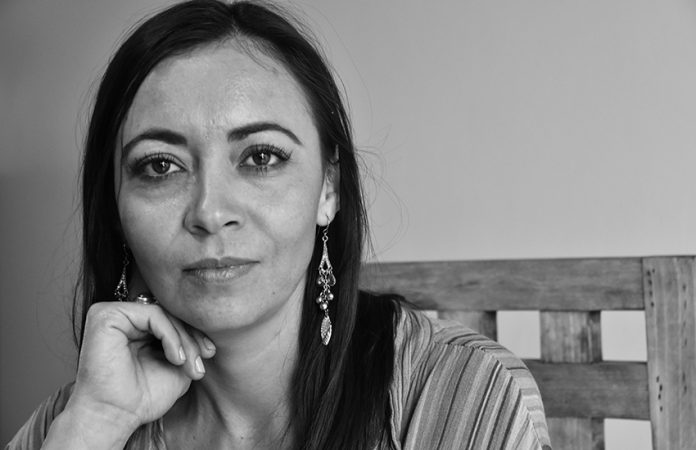There are probably 50 to 60 female business owners in Chipilo, Puebla, the majority of whom go unnoticed. Resident Zuri Merlo is hoping her project to document the lives and work of these women will change that.
“There is not a lot of information about female business owners in Chipilo,” she said. “The project is to record a little of the history and the legacy that these women have made. The idea is to take photographs and to interview women.
“I will put the information on Facebook, maybe have an exhibit, maybe publish some of their photos and stories as part of a book about Chipilo. My hope is that the government will decide to help women with their businesses or to help them start businesses.”
There’s also a more personal reason for her wanting to do this project. “I have two daughters, and I want to show them that it is possible to be a woman and to have a business.”
Merlo’s desire to undertake this project is, in part, due to her rebelling against the traditional household in which she grew up.

“I am the oldest in my family, and I have three brothers,” she explained, “and my mother, for example, if I was going to ride a bike with my brothers, she would say, ‘You cannot go because you have to stay in the house and help me because you are a girl. You have to do women’s work.’ Or my father, if he was patching a tire, would tell me I could not do it. So there were clear differences between a man and a woman.”
During meals, if her brothers wanted food, she had to serve them, even if she were eating at the time.
“My father would say, ‘Get up and heat the tortillas for your brother’ and I would say, ‘Why me?’ And they would say it is because it is normal that the daughter serves her brothers. When they told me this, I said, ‘I am not going to do it because he can do it himself.’ I understood that a woman was supposed to serve others and I did not like that.”
Her father also didn’t think that a woman should work outside the home. “He still believes a woman is weaker than a man,” she added. “But I do not think there are limits to what a woman can do.”
Merlo doesn’t like to be limited and has certainly shown that she can be successful at a number of things. She has her own business, selling artisanal foods made in Chipilo; she’s raising two daughters and is the director of Chipilo Nostro, an October festival celebrating the pueblo’s founding in 1882.
She came up with the idea for the festival in 2015 and, until the pandemic shut it down, had been a yearly event since 2017. And now she’s taken on the project Mujeres Emprendedoras Chipileñas (Female Business Owners of Chipilo).

She learned, as might be expected, that women often face challenges that men don’t.
Many of the women she’s interviewed talked about not being taken seriously by men when they first opened their business.
“They do not believe you can do the work,” she said, “but when they see you in your job, your performance, they start to trust you and begin to help you … I believe that this is something that we women have to fight for and win, unfortunately.”
But, she found, once a business owned by a woman was established, men accepted them as equals. “There was no longer discrimination,” she said, adding, “The majority of women were eventually backed by a man, a father, husband, sons or brothers.”
It’s no surprise that most women told her about the challenge of having to work essentially two jobs: at home and at their businesses.
“The biggest challenge for women I interviewed was time,” Merlo said, “because we do not stop doing what we, as women, have to do, like taking care of our husbands and our children, keeping a clean house, all those things … This takes a lot of time, basically dividing our attention between what we put into those things and the attention we want to put into our work. Many times we are not able to focus on growing our businesses.”
Merlo’s upbringing has given her the desire and the drive to prove that she — and other women — can do whatever a man can do and be successful. “Now we have activities like men do,” she said, “and this makes me feel a little excited.”
Joseph Sorrentino, a writer, photographer and author of the book San Gregorio Atlapulco: Cosmvisiones and of Stinky Island Tales: Some Stories from an Italian-American Childhood, is a regular contributor to Mexico News Daily. More examples of his photographs and links to other articles may be found at www.sorrentinophotography.com He currently lives in Chipilo, Puebla.
